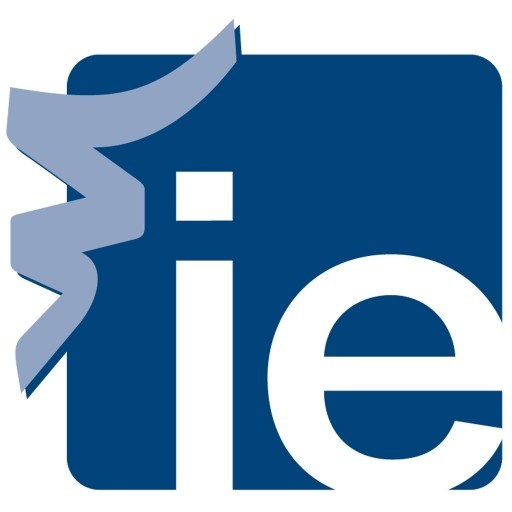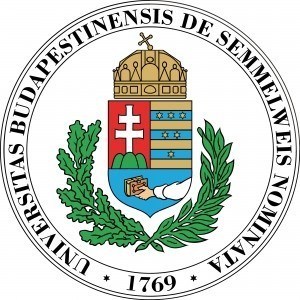Photos of university / #iebusiness
The Bachelor in International Law at IE University offers students a comprehensive and dynamic education focused on the fundamental principles and practical applications of international legal systems. Designed to prepare future legal professionals, diplomats, and policymakers, this programme combines rigorous academic coursework with real-world experiences to equip students with the skills necessary to navigate complex legal environments across borders. Throughout the programme, students explore key areas such as international human rights, international trade law, maritime law, humanitarian law, and global governance, gaining a deep understanding of how laws operate in an interconnected world. The curriculum emphasizes critical thinking, analytical skills, and an interdisciplinary approach, integrating courses in political science, economics, and international relations to provide a holistic perspective on global issues. Students have opportunities for internships, research projects, and participation in simulations and moot courts, enabling them to apply theoretical knowledge in practical settings. IE University’s international environment fosters multiculturalism and collaboration, preparing students to work effectively in diverse cultural contexts and multicultural teams. The programme also encourages engagement with current international legal challenges, such as climate change, migration, terrorism, and cyber law, to develop innovative solutions and leadership qualities. Graduates of the Bachelor in International Law are well-positioned to pursue careers in international organizations, law firms, NGOs, diplomatic missions, and public institutions. They also acquire the foundational knowledge necessary for advanced legal studies or specialization in various fields of international law. With a strong emphasis on ethics, social responsibility, and professional integrity, this degree aims to prepare students not only for successful careers but also to become responsible global citizens capable of influencing positive change on the international stage.
The Bachelor in International Law at IE University offers a comprehensive curriculum designed to prepare students for the complex and dynamic field of international legal practice. Throughout the program, students will explore the fundamental principles and doctrines that underpin international law, including the laws governing the conduct of states and international organizations, human rights, international trade, and environmental law. The programme emphasizes the importance of understanding legal mechanisms in resolving global conflicts, promoting justice, and fostering cooperation among nations.
Students will engage in a rigorous study of the legal systems of different countries, comparative law, and the role of international institutions such as the United Nations, World Trade Organization, and International Court of Justice. The curriculum includes courses on diplomacy, negotiation, and conflict resolution, equipping students with essential skills to manage disputes and facilitate effective international cooperation. Ethical issues and the social impact of legal decisions are integral parts of the coursework, encouraging students to develop a conscientious approach to legal practice.
Practical experience is a key component of the program, with opportunities for internships, moot court competitions, and simulated negotiations that allow students to apply theoretical knowledge in real-world situations. The program also fosters a multidisciplinary approach, integrating aspects of political science, economics, and international relations, enabling graduates to understand the broader context within which international law operates.
IE University's innovative teaching methodology combines lectures, case studies, group projects, and interactive seminars, promoting critical thinking and effective communication. The faculty comprises renowned experts and practitioners from the field of international law, providing valuable insights and mentorship. Graduates of the Bachelor in International Law will be well-equipped to pursue careers in international organizations, governmental agencies, non-governmental organizations, law firms, and multinational corporations. They will possess the skills necessary to analyze complex legal issues, advocate effectively, and contribute meaningfully to global justice and international development initiatives.
Program requirements for the International Law Bachelor's Degree at IE University typically include a combination of academic prerequisites, language proficiency, and application materials. Prospective students are generally required to have completed secondary education with strong academic performance, particularly in subjects such as social sciences, history, and languages. Evidence of proficiency in English is mandatory, often demonstrated through standardized tests such as TOEFL or IELTS, unless the student’s previous education was conducted in English. Additionally, applicants must submit a completed application form, a personal statement or motivation letter outlining their interest in International Law and their career aspirations, and official academic transcripts. Some applicants may be asked to provide letters of recommendation from teachers or academic mentors who can attest to their suitability for rigorous university-level study. The selection process may include an interview, either in person or online, designed to assess the applicant’s motivation, communication skills, and understanding of current international legal issues. There are no specific prerequisite courses required prior to admission, but a strong foundation in critical thinking, analytical reasoning, and foreign language skills can be advantageous. The program also values diversity and international awareness, so applicants are encouraged to highlight relevant extracurricular activities, internships, or experiences related to law, international relations, or multicultural environments. Once admitted, students are expected to meet ongoing academic standards, participate actively in coursework and internships if available, and engage with the university’s international community. The program aims to prepare graduates for careers in international law, diplomacy, global policy, or further specialization through postgraduate studies, and thus prepares students with both theoretical knowledge and practical skills necessary for success in these fields.
The financing studies for the International Law programme at IE University are designed to make higher education accessible to a diverse range of students through a variety of financial aid options. IE University offers competitive scholarships based on academic merit, financial need, and specific criteria related to the applicant's background or field of interest. These scholarships can significantly reduce the overall cost of tuition and are intended to support students in pursuing their academic goals without undue financial burden.
In addition to scholarships, IE University provides students with access to flexible payment plans that allow for installment payments throughout the academic year, easing the financial pressure of upfront payments. The university also offers information and guidance on external funding sources, including government grants, private scholarships, and loan programs, which students can potentially leverage to finance their studies.
International students are encouraged to explore national and international scholarship opportunities, as many programs recognize the value of a diverse cohort and offer financial support to outstanding applicants from around the world. For those requiring loans, IE University has partnerships with financial institutions that provide education loans with favorable terms, including low interest rates and deferred payment options.
The university maintains transparency in its costs and frequently updates its financial aid offerings on its official website. Prospective students are advised to review the specific eligibility criteria, application deadlines, and required documentation for each financial assistance program well in advance of the admission cycle. The goal of IE University’s financing studies is to ensure that financial considerations do not hinder talented students from accessing high-quality legal education. The university’s dedicated financial aid office is available to assist applicants and current students in navigating available options, submitting applications, and understanding the requirements for funding sources.
Overall, the financing studies for the International Law programme reflect IE University’s commitment to fostering an inclusive academic environment and supporting students through comprehensive financial planning and aid initiatives.
The Bachelor in International Law at IE University is designed to provide students with a comprehensive understanding of the legal systems and international regulations governing global interactions. The program aims to develop critical thinking, analytical skills, and a deep knowledge of legal principles applicable across different jurisdictions. Throughout the course, students explore core areas such as public international law, private international law, human rights law, international trade law, and environmental law, among others. The curriculum often blends theoretical foundations with practical applications, preparing graduates for careers in international organizations, diplomatic services, global law firms, and NGOs. The program emphasizes multilingualism, intercultural competence, and a global perspective, reflecting the interconnected nature of contemporary international legal issues. Students benefit from diverse teaching methodologies, including case studies, simulations, internships, and collaborative projects with international partners. Additionally, the program fosters soft skills such as negotiation, dispute resolution, and ethical judgment, essential for success in the legal field. Students also have opportunities to participate in moot courts, conferences, and exchanges with partner universities worldwide. The faculty comprises experienced academics and practitioners committed to excellence in teaching and research. Graduates of this program are well-equipped to navigate complex legal frameworks and contribute effectively to international legal discourse and policy-making. Overall, the program's goal is to cultivate socially responsible professionals with a thorough understanding of international law, ready to face the challenges of our globalized world.





